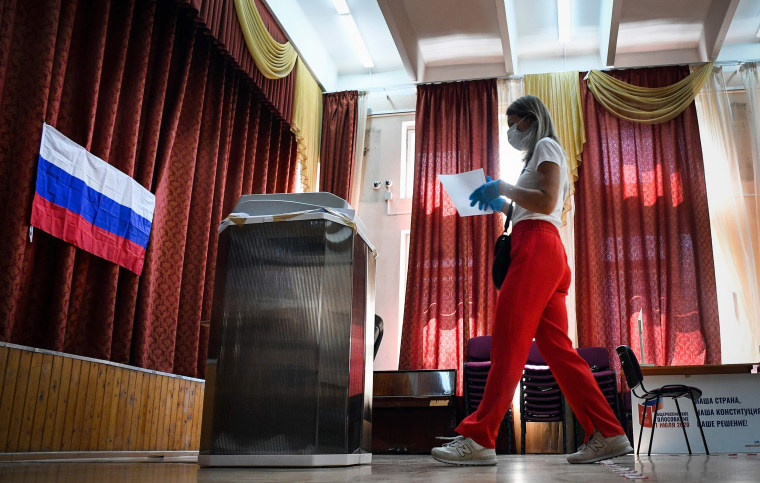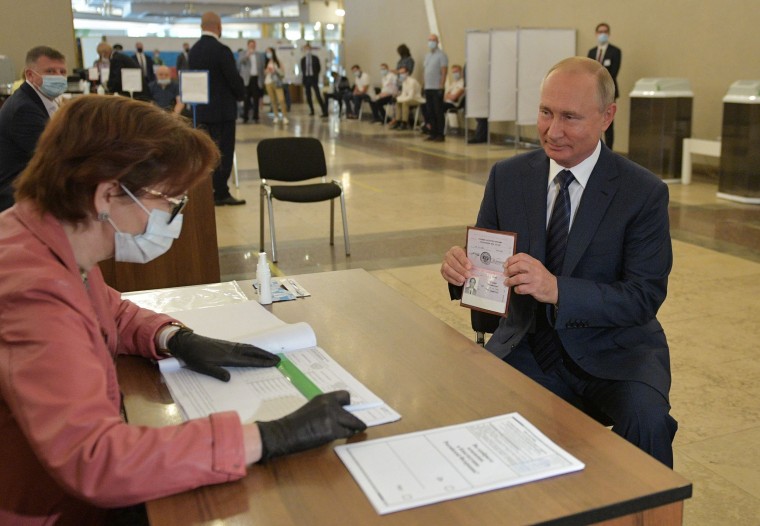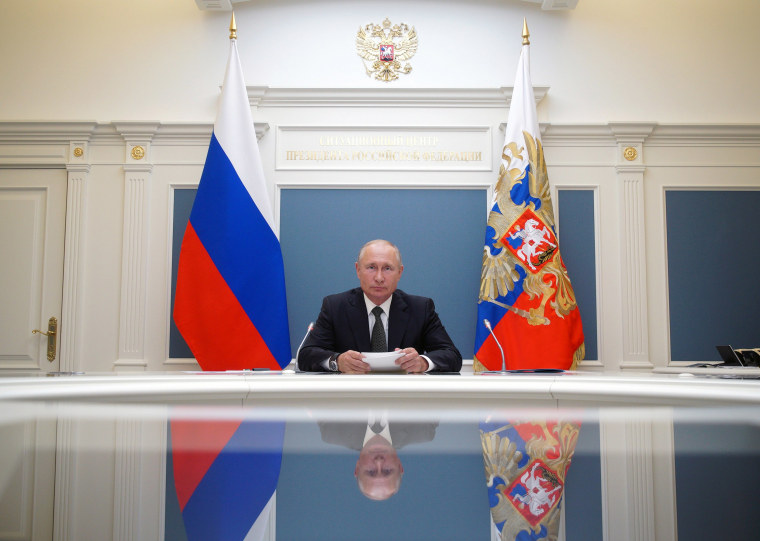MOSCOW — Russian President Vladimir Putin looked set to secure his political future on Wednesday as the country conducts a controversial national referendum that could see the former KGB agent stay in power until 2036.
More than 200 other issues are being put to the public in these polls and the Kremlin is keen to downplay resetting Putin’s length of office — in the government’s get-out-the-vote campaign it amounts to little more than fine print.
Putin, who has been president for 20 years, addressed the nation Tuesday night in front of a new World War II memorial and made the case for constitutional revisions on the basis of patriotism and a vague promise of securing Russia’s future.
“We are not just going to vote on amendments that have been clearly formulated as legal norms,” Putin said,
“We are going to vote for the country where we want to live, with cutting-edge education and healthcare, a reliable system of social protection and an effective government accountable to the people ... which we would like to pass on to our children and grandchildren.”
Putin first proposed a constitutional shakeup in January and this vote was originally scheduled for April 23, but the coronavirus pandemic forced the Kremlin to blink and alter its political plans for the year — delaying the referendum as Russia’s outbreak became the world’s second largest in May.
But, impatient with the delays, the Kremlin in late May decided it had waited long enough and began to pressure local leaders to lift COVID-19 lockdowns to pave the way for a nation-wide referendum on July 1.
However, coronavirus has continued to loom over the campaign for constitutional change. For the first time, polling stations were opened a week before the official vote to allow staggered voting.

At polling stations in Moscow on Wednesday, voters were issued masks and gloves upon entry. Putin, seen voting at the Russian Academy of Sciences, was not seen wearing either.
Few doubt the amendments will pass. Copies of the constitution with the proposed amendments have already been seen on sale in online and physical bookstores.
A state-run polling center, VTsIOM, has already set the expectation for the results — due sometime late Wednesday — based on exit polling at early voting stations released on Monday: 76 percent of respondents approve of the 206 proposed constitutional amendments.
The result may not be in doubt, but in Russian elections a more telling statistic is voter turnout. The Kremlin is primarily interested in seeing large turnout numbers to back up claims that the outcomes are a legitimate expression of popular will.
To these ends, much effort has been expended this year to get Russians out of their houses — where they’re still being cautioned by some authorities to shelter in place — and vote for the proposed amendments.
There have been reports of state company employees, including teachers, being ordered to vote. The government has also offered raffle prizes ranging from hairdryers to new apartments for those who make their way to the polls. The Moscow city government even ran a contest called “Million Prizes” that promised to give away almost $145 million in vouchers exchangeable for a variety of goods.
And in Moscow and Nizhny Novgorod, authorities also experimented with online voting. According to the Central Election Commission (CEC), 93 percent of the 1 million citizens who registered for online voting cast their ballots.

And as of Wednesday afternoon, these efforts appeared to have paid off and resulted in a turnout of more than 60 percent, according to the Central Election Commission. And early results from the far east of Russia, published while polls were still open in Moscow, claimed over 74 percent voted in favor of the proposed amendments — even though just 1 percent of ballots had been counted at that point.
Despite its likely result, today’s referendum does not set Putin’s future in stone. What it does is pave the way for a possible holding of power until 2036 -- giving him the opportunity to be Russia’s longest-serving ruler since Peter the Great.
But he will have to run two more presidential campaigns. As always, if he chooses to do so, the question then will be how many votes are actually cast.
